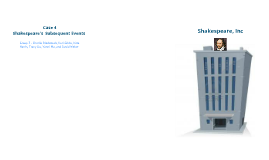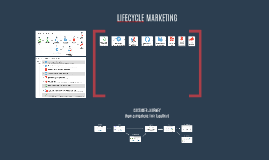Audit Presentation
Transcript: D-Merton PLC COMPANY LOGO Analysis of key events About About Evaluation of the events and their consequences in the near collapse of D-Merton PLC based on our professional opinion. Contents Contents 1 Introduction 2 Duties of Directors 3 Duties of Directors 4 Corporate Governance Code 5 Ethics 6 Fraud 7 Conclusion Introduction Introduction In this presentation we will be analysing the conduct and performance of the individuals that may have contributed to the near collapse of D-Merton PLC. We believe there were a chain of events where a number of individuals in key positions breached their duties. Overview Overview of key Individuals OUR TEAM OUR TEAM Cartwright Richard Director Wyld Eloise Deputy Director Moussa Ibrahim Deputy Director Thakkar Yash Assistant Directors Goddard Toby Department Head Huang Amanda Assistant Directors Duties of Directors Director's Duties Companies act 2006 lists out the duties of the directors under these sections: Section 171, A Duty to act within powers Section 172, A Duty to promote the success of the company Section 173, A Duty to exercise independent judgment Section 174, A Duty to exercise reasonable care, skill and diligence Section 175, A Duty to avoid conflicts of interest Section 176, A Duty not to accept benefits from third parties Section 177, A Duty to declare interest in proposed transaction or arrangement Directors Duties Directors Duties Directors have a legal duty to the shareholders of the company. This applies to both Executive and Non-Executive directors. Richard Dalton Richard Dalton Section 172: Initially thought not a threat due to deferred share package kept long term shares price growth a priority, however he ignores the independent experts opinion. Section 175: Lies about connections to Premintel and intentionally hides evidence of the payments. Companies Act 2006 Senior Executive Director Kris Perry Kris Perry Section 172: Is hesitant to push for option 1 when he believes that would have been the right choice, maybe this would have prevented the hack. Companies Act 2006 Senior Executive Director Liz Harris Section 172: Annoyed she was not appointment chair, thus maybe wanted to prove a point by not changing auditor completely (personal vendetta). Companies Act 2006 Liz Harris Non-Executive Director Roger Tilman Companies Act 2006 Section 171: Recently adopted and has tension with Liz, this could have been the reason behind wanting to change the auditors, potentially a power move. Section 173: Made the decision on the IT system simply on what was better from a financial perspective. Inconsistent with the making decision, initially wanted the new IT system. Roger Tilman Senior Executive Director Charles Newland Companies Act 2006 Section 173: Seems to be a follower. Section 174: Does not have adequte knowledge of the technological side of the products. Charles Newland Senior Executive Director Duties of Auditors Auditor's Duties Auditors have a duty to remain independent and provide their professional opinion on the performance of a company. Companies Act 2006, section 498 lists out the duties of the auditors and states a company's auditor must carry out investigations and produce an auditors report. TYSL TYSL TYSL have been re-appointed to be the auditors for D-Merton by the Board during their meeting on January 2011 Auditors Report Companies Act 2006, Section 498 Auditors Report A company's auditor, in preparing his report, must carry out such investigations as will enable him to form an opinion as to— a) Whether adequate accounting records have been kept by the company and returns adequate for their audit have been received from branches not visited by him. This was however breached by Patrick whilst he was the senior auditor for D-Merton the year previously. He failed to get sufficient evidence of D-Merton and Prementel’s business transactions. Arguably this had significant impact on how D-Merton conducted their finances and business operations after. b) Whether the company's individual accounts are in agreement with the accounting records and returns. Auditors Rights Companies act 2006, section 502 Auditors Rights Company's Act 2006, Section 499. An auditor of the company has a right of access of access at all times to the company's books and accounts. Company's auditor is entitled to receive all notices of, and other communications relating to, any general meeting which a member of the company is entitled to receive. But, due to how the auditors used to just trust the word of the director, they failed to obtain the information which could have potentially helped them spot the problems in D-Merton earlier. Corporate Governance Code Corporate Governance Code All listed UK companies are required under the Listing Rules to report how they have applied the Code. The code operates under a comply or explain rule. UK Corporate Governance Code UK Corporate Governance Code The Code has 5 Main Principles, these are: • Leadership • Effectiveness • IFAC code of

















